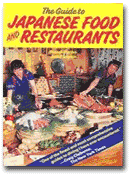When you’re doing business in Japan, you don’t want to inadvertently harm your deal by breaching a rule of Japanese business etiquette. Japanese consider their traditions and culture very important, and the business setting is no exception.
Short of buying an entire book to learn Japanese business etiquette, here are some tips for doing business in Japan.
Behave like Westerners, but “watch your P’s & Q’s.”
Take 200 business cards for each week of meetings. Don’t write on a Japanese person’s business card, treat it with respect like an extension of the person.
The middle of the table is reserved for superiors; the seat nearest the door is lowest on the totem pole. Arrange the business cards according to the seating order. Request an organizational chart or sketch if necessary.
Communicating with Japanese Business People
Japanese business people expect a response in 24 hours, so send a placeholder if more time is required.
Japanese understand a lot of English, but use the whiteboard extensively. Don’t tell jokes, no one will understand the English or the humor. Bring hard copies of all business presentations and company literature (five per meeting).
Japanese never say “no,” therefore it is hard to gauge their true degree of interest. Be tactful rather than truthful if you must convey negative information.
Do not boast or allow yourself to be perceived to boast. Use an interpreter to preserve your ability to convey nuance, test the waters, and stonewall.
Business Negotiations
Control the agenda, delegate someone in your staff to take meeting minutes. The Japanese take excellent notes and will quote you verbatim years later.
Group decision-making requires longer leadtimes. If the “top dog” dozes off, it’s not a breach of etiquette; it simply means he has delegated to the underlings.
Identify your internal champion(s) early.
Japanese are bad at writing a business plan, so “spoon feed” them an outline. Start with a 2-3 page binding Letter of Intent, the contract will take 2-4 months.
Japanese tolerate longer silences, so be quiet, wait, and don’t offer creative solutions. After establishing true intentions, provide extensive information under NDA.
Japanese will always request a “fair” or reciprocal concession. Sometimes the Japanese will throw everything away and try to start over from scratch.
Weather, Cash, Taxis, Gifts, Restaurants in Japan
Sometimes the smallest aspects of Japanese business etiquette can cause the most confusion. Here are some tips to help you outside the business meeting.
Weather
Tokyo weather is like Washington, D.C., hot and muggy. Wear business suits during the week, sports jackets/long pants on weekends.
Cash
Bring at least $500 cash per week, convert money at the airport bank teller, later at the hotel. Don’t tip anyone because service, without bribery, is assumed to be part of everyone’s job in Japan.
Taxis
Allow 2 hours from Narita to downtown Tokyo, take the Orange Limousine Bus direct to your hotel or to Tokyo City Air Terminal and take a cab to your hotel. A taxi from Narita to downtown Tokyo could cost $200-400.
Don’t open the rear left taxi door yourself, as the driver operates this. Never open the rear right door because it can be dangerous to get out on the traffic side and spook the driver.
Simple written English is easily understood by most Japanese.
Gifts
Worry about business gifts on the second trip. Bring a regional specialty (scrimshaw from Boston, dried salmon from Washington state, dried fruit from California) that can be shared among staff, and a single item for the “top dog” relating to his hobby like special golf balls or photographs.
Restaurants
Wear loose shoes and socks without holes if you go to a Japanese restaurant as you will have to remove your shoes. Never pour your own drink, always offer food to others before partaking yourself.
There are many excellent Japanese restaurants with plenty to offer besides sushi.
Don’t squeeze lemon juice on “raw masterpiece” sashimi, it may jump off your plate!
 |
Jack Plimpton’s Guide to Japanese Food and Restaurants is a generic introduction to different Japanese cuisines. |
Books on Japanese Business Etiquette
Japanese business etiquette is a much-discussed topic — so much so that a search on Amazon.com brings up several Japanese etiquette books. For your convenience we have listed several of them here:
- Japanese Business Etiquette: A Practical Guide to Success With the Japanese by Diana Rowland
- Japanese Etiquette and Ethics in Business by Boye Lafayette De Mente
- Passport Japan: Your Pocket Guide to Japanese Business, Customs & Etiquette (Passport to the World) by Dean W. Engel
- ‘Walther Bit’ Of Business Etiquette Japanese Language Book by Shiyouzou Shibuya
- Etiquette Guide to Japan: Know the Rules…that Make the Difference by Boye Lafayette De Mente (Paperback – Aug 2001)
- How To Learn Japanese Business Protocol and Etiquette by Quick Easy Guides
and on the lighter side:
- Dave Barry Does Japan by Dave Barry

